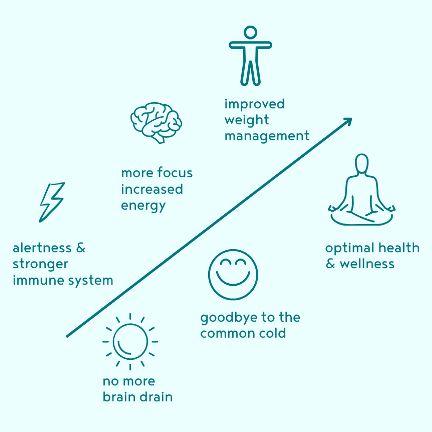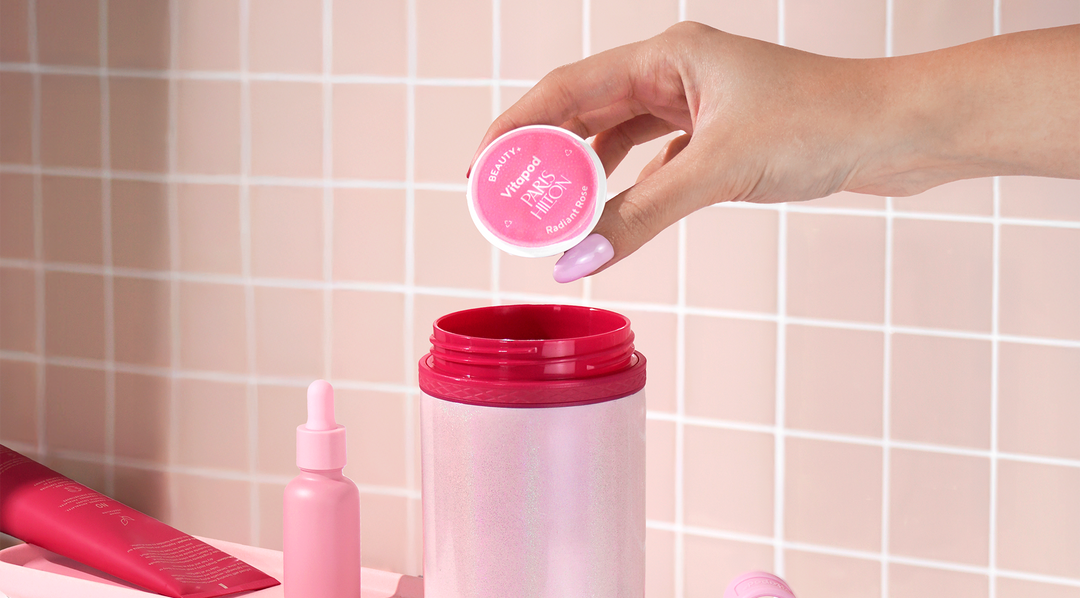The Health Benefits of Hydration: Exploring the Science

Hydration is essential for maintaining good health. The human body is made up of approximately 60% water, and every system in the body relies on water to function properly. Adequate hydration is necessary for regulating body temperature, transporting nutrients, and removing waste products.
The benefits of hydration extend far beyond just quenching thirst. Proper hydration can improve cognitive function, boost athletic performance, and even aid in weight loss. Studies have shown that even mild dehydration can negatively impact mood, concentration, and energy levels. On the other hand, staying well hydrated can help prevent headaches, improve skin health, and reduce the risk of chronic diseases such as kidney stones and urinary tract infections.
Understanding the science of hydration is key to reaping its many health benefits. From the amount of water needed for optimal hydration to the best sources of hydration, there is much to explore. In this article, we will delve into the latest research on hydration and its impact on health, and provide practical tips for staying hydrated throughout the day.
The Importance of Hydration
What is Hydration?
Hydration is the process of providing the body with enough fluids to maintain normal bodily functions. Water is the most important fluid for hydration, but other liquids like milk, fruit juices, and sports drinks can also contribute to hydration.
How Much Water Should You Drink?
The amount of water a person needs to drink each day can vary depending on factors like age, gender, activity level, and climate. In general, it is recommended that adults drink at least eight 8-ounce glasses of water per day. However, some people may need more or less depending on their individual circumstances.
The Benefits of Hydration
Staying hydrated has many health benefits, including:
- Regulating body temperature
- Lubricating joints
- Helping with digestion
- Supporting kidney function
- Improving brain function and mood
- Boosting athletic performance
Dehydration, on the other hand, can lead to a variety of health problems, including headaches, fatigue, dizziness, and even heat stroke in extreme cases.
In conclusion, staying hydrated is crucial for maintaining good health and preventing dehydration-related health issues. By drinking enough water and other fluids, individuals can support their bodily functions and improve their overall well-being.
Factors Affecting Hydration
Hydration is essential for maintaining good health. However, several factors can affect hydration levels in the body. In this section, we will discuss the most important factors that affect hydration.
Climate and Temperature
Climate and temperature play a significant role in determining hydration levels in the body. Hot and humid weather can cause excessive sweating, leading to dehydration. Conversely, cold weather can reduce the sensation of thirst, leading to inadequate fluid intake. Therefore, it is essential to drink plenty of water and other fluids to maintain hydration levels, especially during extreme weather conditions.
Physical Activity
Physical activity can also affect hydration levels in the body. During exercise or other physical activities, the body loses water through sweat, leading to dehydration. It is crucial to drink plenty of fluids before, during, and after physical activity to maintain proper hydration levels. Additionally, athletes and people who engage in intense physical activities may need to consume sports drinks that contain electrolytes to replenish the lost fluids and minerals.
Age and Gender
Age and gender can also affect hydration levels in the body. Older adults and children have a higher risk of dehydration due to their reduced ability to conserve water and regulate body temperature. Women may also have a higher risk of dehydration during menstruation and pregnancy. Therefore, it is essential to monitor hydration levels in these populations and encourage them to drink plenty of fluids.
Medical Conditions
Certain medical conditions can also affect hydration levels in the body. Conditions such as diabetes, kidney disease, and gastrointestinal illnesses can cause dehydration due to increased fluid loss or reduced fluid intake. Additionally, medications such as diuretics and laxatives can also cause dehydration. Therefore, people with these medical conditions need to monitor their hydration levels and consult with their healthcare provider to develop a hydration plan that meets their individual needs.
In summary, several factors can affect hydration levels in the body. It is essential to monitor hydration levels and drink plenty of fluids to maintain good health.
Signs of Dehydration
Dehydration is a condition that occurs when the body loses more fluids than it takes in. It can happen for various reasons like sweating excessively, not drinking enough water, or having a fever. The symptoms of dehydration can range from mild to severe, and it's essential to recognize them to prevent further complications.
Here are some common signs of dehydration:
- Thirst: Feeling thirsty is the most obvious sign of dehydration. It's the body's way of telling you that it needs more fluids.
- Dry mouth and throat: When the body is dehydrated, it produces less saliva, causing the mouth and throat to feel dry.
- Dark urine: Dehydration can cause the urine to become dark yellow or amber in color. The darker the urine, the more dehydrated the person is.
- Fatigue: Dehydration can cause fatigue and weakness, making it difficult to perform daily tasks.
- Dizziness and lightheadedness: Dehydration can cause a drop in blood pressure, leading to dizziness and lightheadedness.
- Headaches: Dehydration can cause headaches due to the loss of fluids and electrolytes in the body.
- Dry skin: Dehydration can cause the skin to become dry and flaky, making it look dull and lifeless.
- Muscle cramps: Dehydration can cause muscle cramps and spasms due to the loss of electrolytes like potassium and sodium.
If left untreated, dehydration can lead to severe complications like heat exhaustion, heatstroke, and kidney failure. Therefore, it's crucial to recognize the signs of dehydration and take steps to prevent it.
Tips for Staying Hydrated
Staying hydrated is important for overall health and well-being. Here are some tips to help you stay hydrated:
Drink Enough Water
The most obvious way to stay hydrated is to drink enough water. The amount of water a person needs can vary depending on their age, weight, and activity level, but a general guideline is to drink at least 8 glasses of water per day. It's important to note that other fluids, such as tea and juice, can also contribute to hydration.
Eat Hydrating Foods
In addition to drinking water, eating foods with high water content can also help with hydration. Fruits and vegetables, such as watermelon, cucumbers, and strawberries, are great options. Soups and broths can also be hydrating.
Monitor Your Urine Color
A simple way to check if you are staying hydrated is to monitor the color of your urine. If your urine is light yellow or clear, you are likely well hydrated. If it is dark yellow or amber, you may need to drink more water.
Avoid Alcohol and Caffeine
Alcohol and caffeine can be dehydrating, so it's important to limit your consumption if you want to stay hydrated. If you do drink alcohol or caffeine, make sure to drink extra water to compensate.
Use Electrolyte Supplements
Electrolyte supplements can be helpful for people who are very active or who sweat a lot. These supplements can help replace the electrolytes lost through sweat and can help with hydration.
Overall, staying hydrated is important for maintaining good health. By following these tips, you can help ensure that you are getting enough fluids to keep your body functioning properly.
“We have formulated these nutritionally advanced beverages to help families make good decisions that support optimal health and wellness. Many ingredients have been included in randomized clinical trials and have proven health benefits. Our goal is to provide your body with essential nutrients and the daily hydration you need to feel good and function at your best.” - Dr David Nieman DrPH, FACS. A pioneer in the research area of exercise and nutrition immunology.
Conclusion
In conclusion, staying hydrated is crucial for maintaining good health. Water is essential for maintaining bodily functions such as regulating body temperature, aiding digestion, and transporting nutrients and oxygen throughout the body.
Drinking enough water can also help prevent dehydration, which can lead to headaches, fatigue, and other health issues. Additionally, staying hydrated can help improve cognitive function, boost athletic performance, and promote healthy skin.
While there is no one-size-fits-all approach to hydration, it is generally recommended that individuals drink at least 8 cups of water per day. However, factors such as age, weight, activity level, and climate can all impact a person's hydration needs.
Incorporating hydrating foods and beverages into one's diet, such as fruits, vegetables, and herbal teas, can also help maintain hydration levels. It is important to note that while other beverages such as coffee and soda can contribute to overall hydration, they should not be relied upon as the sole source of hydration.
Overall, the science of hydration is complex and multifaceted. However, by staying mindful of one's hydration needs and incorporating healthy habits into one's daily routine, individuals can reap the many health benefits of staying hydrated.










